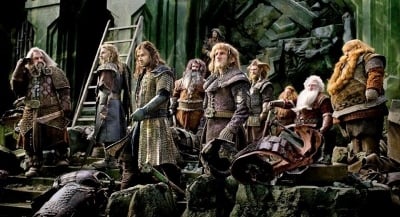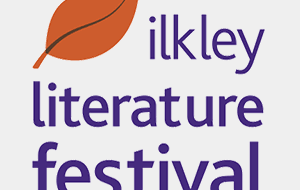‘Still Alice’ screening and Q&A with Leeds director Wash Westmoreland
March 6, 2015
[Image courtesy of indiewire.com]
Fresh from Julianne Moore’s Oscar win for Best Actress in Still Alice less than a week ago, Leeds-born director Wash Westmoreland is clearly delighted to be playing in front of a home crowd. His film is debuting at the Hyde Park Picture House, a cinema he first visited at the age of 4 to see ‘Bedknobs and Broomsticks’, now surrounded by a sea of smiling family and friends.
Our happy mood quickly disappears as Still Alice is ultimately a film dealing with the trauma of early-onset Alzheimer’s disease. Cased on the novel by Lisa Genova, the film follows Julianne Moore’s ‘Alice’ as she becomes increasingly disconnected from reality. Scenes are frequently captured from her point of view, and as her vision becomes blurred or spins out of control, so does ours. We experience the ferocity of a sudden panic attack when she becomes lost on a run, the feeling of the world slipping from underneath as she struggles for control. What’s still more surprising is how rare it seems for an older woman not only to be the driving force but also the central focus of a film.
Drifting through the leafy brownstones of New York City, this is a far cry from the gritty ‘real world’ problems of the streets beyond, yet the film is still underpinned by a deep sense of sadness. Dr Alice Howland is a highly respected professor of Linguistics at Columbia University, the first signs of what’s to come appearing with a brief memory lapse during a lecture. As an intellectual who has made language her life’s work, her decline into Alzheimer’s is swift and brutal, emphasised by visits to her sympathetic neurologist Dr Benjamin (Stephen Kunken) at different stages of her illness.

[Image courtesy of deadline.com]
Her husband John, played by a slightly rumpled, world-weary Alec Baldwin, stubbornly refuses to see that the ‘most intelligent woman he has ever met’ is swiftly disappearing before his eyes. Despite his efforts to hold onto the wife he loves, Alice’s loss of understanding is made plain through interactions with her brusque, high-achieving lawyer daughter Anna (Kate Bosworth) – who, along with husband Charlie (Shane McRae), is locked in her own struggle to conceive her first child. Although Alice’s son Tom, who has recently qualified as a doctor (Hunter Parrish), takes more of a side-line role, rebellious daughter Lydia (Kristen Stewart) clashes with Alice as she struggles to find her way as an auditioning actress in L.A. In one of the few times when Alice’s feelings about her illness are truly confronted head-on, Lydia asks her mother “What’s it like? I mean, what does it actually feel like?” Alice replies “Sometimes I can see the words hanging in front of me and I can’t reach them and I don’t know who I am, and I don’t know what I’m going to lose next”.
Julianne Moore’s restrained performance sends a sense of loss running through the film like a sad current, as it confronts us not only with the fear of growing older, but the fear of losing our grasp on reality and our ability to function in the world. Whilst films like The Diving Bell and The Butterfly take us inside the terror of being locked within a body incapable of speech, Still Alice deals with the disappearance of our memories and all that makes a person uniquely human.
As Alice stands to give an address at the Alzheimer’s convention, there is a feeling of triumph of a woman taking one last stand which outshines the overwhelming sadness of the moment. She is not full of self-pity however, rather saying that “I rail against myself for not being able to remember things, but I still have moments in the day of pure happiness and joy”.
She fights against all that her illness looks to take from her, constantly creating tests for herself that only the audience sees. Even once Alice’s power over her consciousness is gone, with conversations shot from her blurred, foggy perspective, a glimpse of the person she once was still remains. When Lydia recites a passage from the play Angels in America for her mother, pausing to ask her what it was about, Alice replies only “love”. After all this sadness, we are left with a glimmer of hope.

[Image courtesy of www.aceshowbiz.com]
Whilst making this film, Wash Westmoreland and his co-director and partner Richard Glatzer went through a similarly traumatic experience dealing with the effects of Richard’s diagnosis with ALS. Although this affects the body physically, not mentally, it is still clear that this film had a strong personal resonance as the script was offered to them the same year that Richard was diagnosed.
The Q&A after the film, hosted by local scriptwriter and director Kay Mellor, was a light-hearted affair. Friends make quips about when Wash is going to make a Yorkshire version of Spinal Tap featuring former teenage band ‘Electric Hernia’. Wash laughs and described them as a band “single-handedly attempting to drag the 60’s into the 80’s, with lots of hanging round camp fires”. As he leaves Wash advises a budding film maker to get out and create, “inventing like it’s a religion, not just for the pay-checks”.
Talking to Wash, it’s clear that Julianne Moore’s Oscar win is not only well deserved, but sets an important precedent in a Hollywood film culture where youth is still everything. “It’s important for people to see that leading roles for older women are not just possible but that they’re commercially viable”, he says. Here’s hoping that this independent film has paved the way for real change.
Kate Parkin
Wash Westmoreland was speaking at the Hyde Park Picture House on 28/02/14. Still Alice is playing at cinemas now.
Filed under: Film, TV & Tech
Tagged with: director, film, Hyde Park Picture House, review, Still Alice



Comments